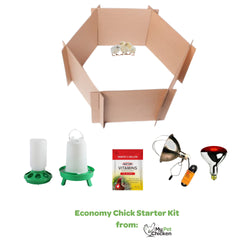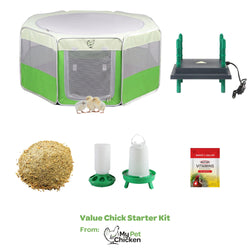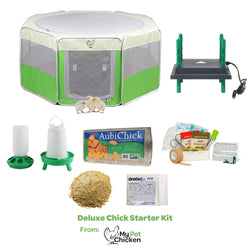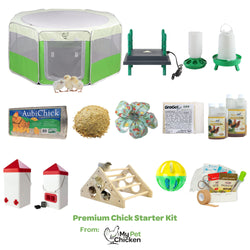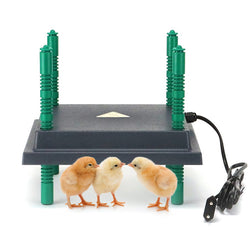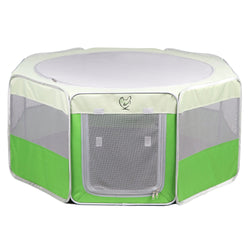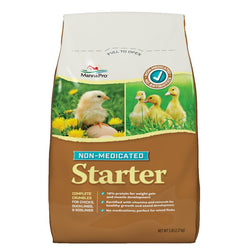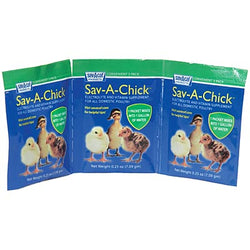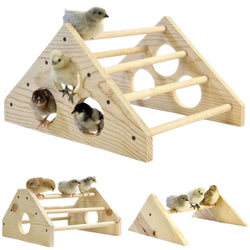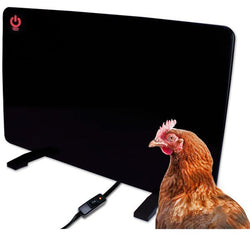How much does it cost to feed a chicken?
Back to blog
A basic estimate is that chickens will eat 1/4 pound per day per chicken. However, that estimate is based on the conditions commercial layers face in factory farm conditions and are not necessarily accurate estimates for backyard chicken keeping. They're estimates for high-production, economical producers of eggs in controlled conditions year-round, who may be highly stressed and who certainly have no access to pasture. Such estimates are probably not accurate for bantam or heritage breeds of chickens kept in backyard conditions. Chickens kept in hobby farm conditions have varying egg production based on breed and season, have varying sizes from teeny Seramas to giant Brahmas, often get treats like fruit and veggies from loving caretakers, they will not be slaughtered as they get older and their eating habits change, they likely have grass and bugs to supplement their feed, AND they may have icy, dark coop conditions in the winter as well as very hot, bright summers (or not). It's definitely not comparing apples to apples. Backyard chickens may eat more--or they may eat less!

So... how much you spend on chicken feed will depend on how many chickens you have, what brand of chicken feed you get, what the feed prices are for your chosen supplier, whether you are buying "starter" or "grower" or "layer," whether your chickens can supplement their diet on pasture, whether it is winter or summer, how long they free range during the day, what their range is like, what breed of chicken you have (as some chickens eat less and some eat much more) and many other things. Even the type of feeder you buy, whether it is hung or mounted at the proper height for the size of your birds and whether you buy pellets or mash will also affect how much feed is wasted or "beaked out." In other words, this is not an easy question to answer accurately for backyarders!
A quarter pound per bird per day can serve as a vague guideline, but we recommend you determine where you will be purchasing food for your flock and check out their feed prices, just as a starting point. If you're interested in maximizing your feed savings for your flock, you'll want to choose a breed that forages well and eats little. Keep in mind, however, that raising a few laying hens is not usually a way to save money on eggs due to the small scale. Getting geared up and purchasing or building a coop can be a significant expenditure, for one. Excluding upfront costs, however, you still may be paying a little more for your eggs. Many people more or less break even if they have eggs to sell. We have even heard it said that some people do make a little money, but that is probably rare. Even if you pay a little more, though, fresh eggs from hens raised on pasture are tremendously better tasting and even healthier!

Beyond choosing high production breeds in order to save money, you'll also want to choose a breed that lays through the winter. Additionally, you'll want to take into account how much your breed eats to produce each egg---some breeds are "economical eaters," and generally don't eat a whole lot, or are able to forage well. Other breeds lay well but eat a lot---and some breeds are really not good layers at all, but are bought for pleasure: the Polish breeds, for example, are often kept for show due to their unusual appearance!
The cost differential between keeping different breeds can be startling on a large scale or when viewed over the long term. Here are a few chicken breeds that are known as economical eaters: Ancona, Andalusian, Campine, Fayoumi, Hamburg, Houdan, Leghorn and Welsummer. Many of those breeds are known as flighty rather than friendly, though, and most are not known as good winter layers. Some are known to go broody, which means they will stop laying eggs occasionally because they will want to hatch some! The best on this list for backyard pet purposes might be the Welsummer because it is described as friendly, it is a good layer of dark brown eggs, and it is also cold hardy enough to continue laying in cold weather. It is not known as a particularly broody breed, although individuals may vary.
Keep in mind that it costs more than just feed to keep pet chickens. If they get sick, you may need to take them to a vet or buy medicine for them so they will feel better. Many people who keep pet chickens provide things like diatomaceous earth and a place for them to "dust bathe" so they can keep mites at bay. The cost for keeping chickens is relatively low outside of upfront costs, but as you see it is difficult to come up with exact figures due to all the variables.

So... how much you spend on chicken feed will depend on how many chickens you have, what brand of chicken feed you get, what the feed prices are for your chosen supplier, whether you are buying "starter" or "grower" or "layer," whether your chickens can supplement their diet on pasture, whether it is winter or summer, how long they free range during the day, what their range is like, what breed of chicken you have (as some chickens eat less and some eat much more) and many other things. Even the type of feeder you buy, whether it is hung or mounted at the proper height for the size of your birds and whether you buy pellets or mash will also affect how much feed is wasted or "beaked out." In other words, this is not an easy question to answer accurately for backyarders!
A quarter pound per bird per day can serve as a vague guideline, but we recommend you determine where you will be purchasing food for your flock and check out their feed prices, just as a starting point. If you're interested in maximizing your feed savings for your flock, you'll want to choose a breed that forages well and eats little. Keep in mind, however, that raising a few laying hens is not usually a way to save money on eggs due to the small scale. Getting geared up and purchasing or building a coop can be a significant expenditure, for one. Excluding upfront costs, however, you still may be paying a little more for your eggs. Many people more or less break even if they have eggs to sell. We have even heard it said that some people do make a little money, but that is probably rare. Even if you pay a little more, though, fresh eggs from hens raised on pasture are tremendously better tasting and even healthier!

Beyond choosing high production breeds in order to save money, you'll also want to choose a breed that lays through the winter. Additionally, you'll want to take into account how much your breed eats to produce each egg---some breeds are "economical eaters," and generally don't eat a whole lot, or are able to forage well. Other breeds lay well but eat a lot---and some breeds are really not good layers at all, but are bought for pleasure: the Polish breeds, for example, are often kept for show due to their unusual appearance!
The cost differential between keeping different breeds can be startling on a large scale or when viewed over the long term. Here are a few chicken breeds that are known as economical eaters: Ancona, Andalusian, Campine, Fayoumi, Hamburg, Houdan, Leghorn and Welsummer. Many of those breeds are known as flighty rather than friendly, though, and most are not known as good winter layers. Some are known to go broody, which means they will stop laying eggs occasionally because they will want to hatch some! The best on this list for backyard pet purposes might be the Welsummer because it is described as friendly, it is a good layer of dark brown eggs, and it is also cold hardy enough to continue laying in cold weather. It is not known as a particularly broody breed, although individuals may vary.
Keep in mind that it costs more than just feed to keep pet chickens. If they get sick, you may need to take them to a vet or buy medicine for them so they will feel better. Many people who keep pet chickens provide things like diatomaceous earth and a place for them to "dust bathe" so they can keep mites at bay. The cost for keeping chickens is relatively low outside of upfront costs, but as you see it is difficult to come up with exact figures due to all the variables.
